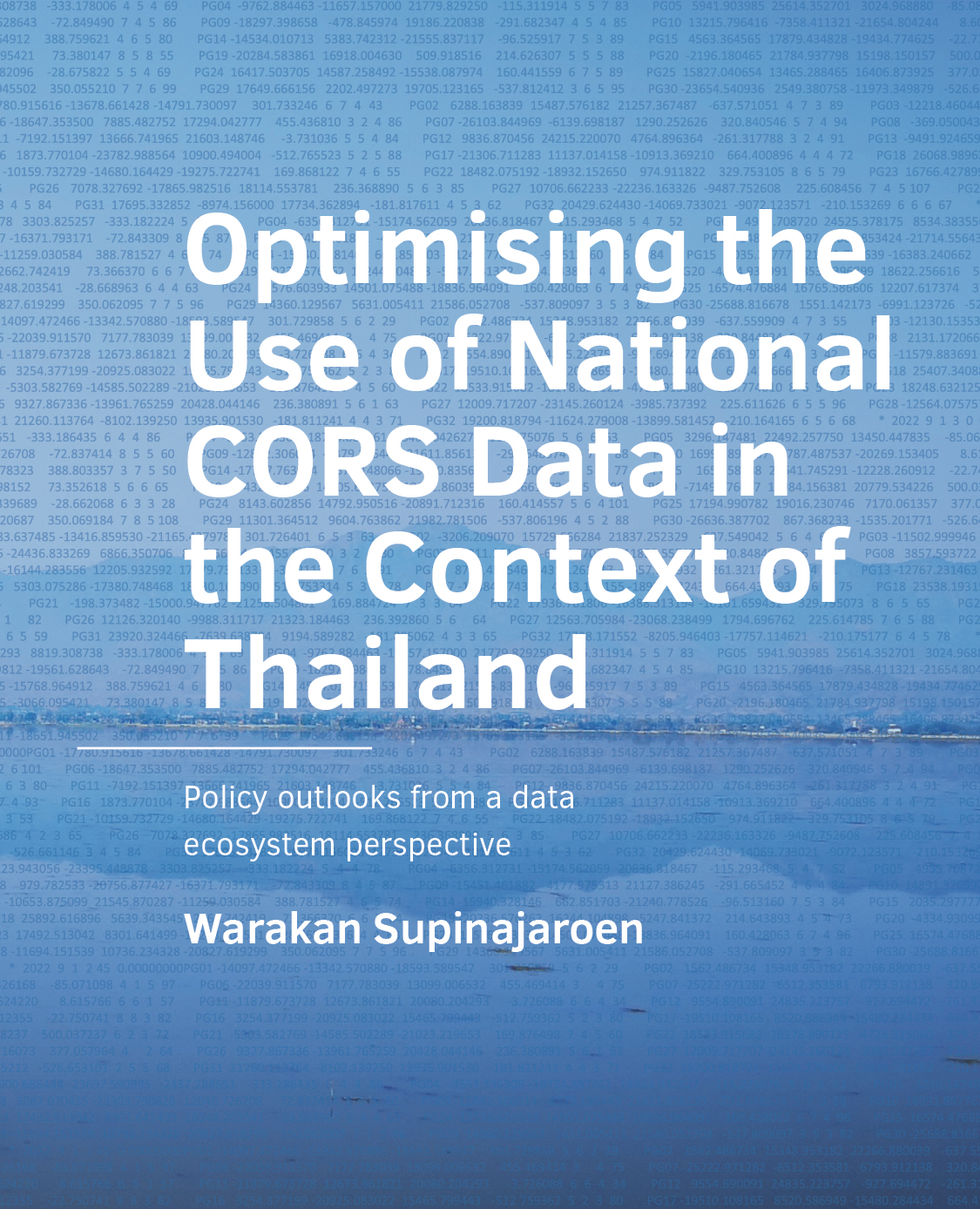Optimising the Use of National CORS Data in the Context of Thailand
Policy outlooks from a data ecosystem perspective
DOI:
https://doi.org/10.7480/abe.2022.18.6829Abstract
This dissertation concerns the optimisation of the use of spatial data from the National Continuously Operating Reference Stations (NCORS) in Thailand. Thailand, among many countries, has established NCORS to observe and process the Global Navigation Satellite System (GNSS) signals into spatial data to improve the positional accuracy in spatially related activities. Despite many potential user groups, only some of them appeared actually to use NCORS data. In order to investigate and recommend policy venues to encourage the use of NCORS data, this research formulates an NCORS data ecosystem concept, applies the concept to identify the gaps in NCORS data use in Thailand, and examines the policies to address the identified gaps. The research shows that Open Data is a prerequisite to make data available to the maximum extent, but not a guarantee that the data also will be used. Next to Open Data, also users, including Open Data intermediaries, must be empowered. The facilitating conditions should be satisfied to enable users to use the data. These conditions require time to take effect. Only then will the spatial data not be kept away in hidden places but will become accessible and usable for as many users as possible in Thailand and deliver social and economic benefits reported in other countries.


